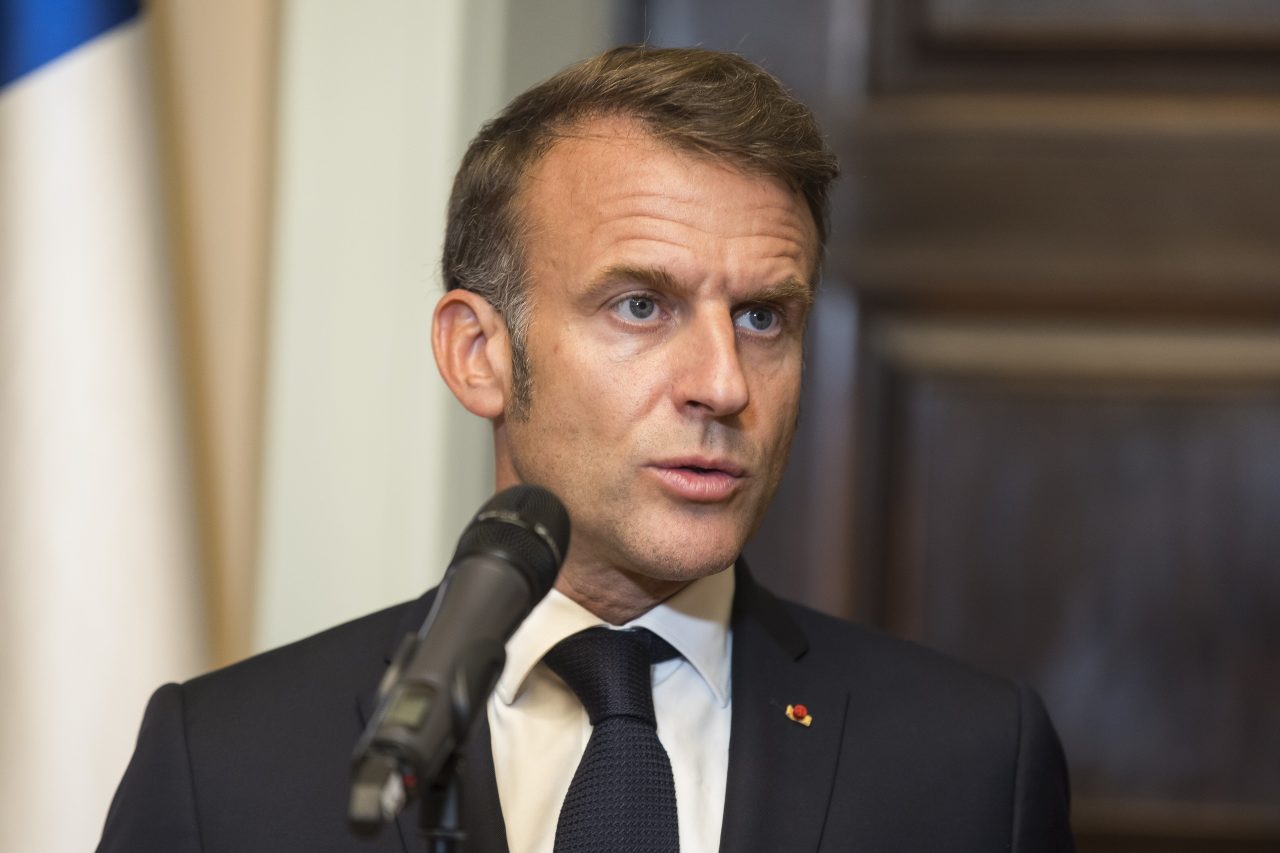World
Macron Advocates for Palestinian Statehood While Challenges Persist

French President Emmanuel Macron has taken a significant step in advocating for the recognition of a Palestinian state, a move he emphasizes as integral to achieving peace in the Middle East. During a speech on March 15, 2024, Macron stated that recognizing a Palestinian state is essential for paving the way towards a lasting resolution to the Israeli-Palestinian conflict. This announcement has sparked a mix of support and criticism both domestically and internationally.
Macron’s call comes amid ongoing tensions in the region, which have been exacerbated by recent escalations in violence and political instability. The French government, under Macron’s leadership, has positioned itself as a mediator in the Middle East, advocating for dialogue between Israel and the Palestinian Authority. The President expressed his belief that a two-state solution is still viable, despite the numerous challenges that have emerged over the years.
Recognition Without a State
Critics argue that recognizing a Palestinian state before it is fully established may undermine the peace process. They highlight that such a gesture, while symbolically significant, does not address the complexities on the ground, including security concerns and territorial disputes. Some analysts suggest that premature recognition could lead to further divisions rather than fostering unity.
In his remarks, Macron acknowledged these concerns but insisted that the recognition of Palestine would not diminish Israel’s right to exist or its security needs. He urged both parties to engage in meaningful dialogue, stressing that progress will require compromises and mutual understanding.
The European Union has largely supported Macron’s stance, emphasizing the importance of a negotiated settlement that respects the rights of both Israelis and Palestinians. The EU has been actively involved in peace initiatives in the region, aiming to facilitate discussions that could lead to a sustainable resolution.
Historical Context and Future Implications
Historically, the question of Palestinian statehood has been a contentious issue in international relations. The United Nations General Assembly granted Palestine non-member observer state status in 2012, a move that was celebrated by many Palestinians but condemned by Israel and its allies. Since then, various attempts to rekindle peace talks have faced significant obstacles, including disagreements over borders, the status of Jerusalem, and the right of return for Palestinian refugees.
Macron’s recent assertion raises questions about the future of peace efforts. While his government seeks to reinvigorate discussions, the reality on the ground remains fraught with challenges. The Israeli government has expressed skepticism regarding unilateral recognition, reinforcing its stance that any resolution must come through direct negotiations.
The implications of Macron’s call extend beyond the Middle East. As global attention shifts to the region, the French president’s actions may influence other nations’ policies regarding Palestinian statehood. The decision could also have ramifications for France’s relationships with both Israel and Arab countries, as well as its standing within the broader international community.
In conclusion, while Macron’s advocacy for Palestinian statehood aims to promote peace, the complexities of the situation require careful navigation. As both sides grapple with historical grievances and current realities, the path towards a lasting resolution remains uncertain.
-

 Lifestyle3 months ago
Lifestyle3 months agoLibraries Challenge Rising E-Book Costs Amid Growing Demand
-

 Sports3 months ago
Sports3 months agoTyreek Hill Responds to Tua Tagovailoa’s Comments on Team Dynamics
-

 Sports3 months ago
Sports3 months agoLiverpool Secures Agreement to Sign Young Striker Will Wright
-

 Lifestyle3 months ago
Lifestyle3 months agoSave Your Split Tomatoes: Expert Tips for Gardeners
-

 Lifestyle3 months ago
Lifestyle3 months agoPrincess Beatrice’s Daughter Athena Joins Siblings at London Parade
-

 World3 months ago
World3 months agoWinter Storms Lash New South Wales with Snow, Flood Risks
-

 Science3 months ago
Science3 months agoTrump Administration Moves to Repeal Key Climate Regulation
-

 Science2 months ago
Science2 months agoSan Francisco Hosts Unique Contest to Identify “Performative Males”
-

 Business3 months ago
Business3 months agoSoFi Technologies Shares Slip 2% Following Insider Stock Sale
-

 Science3 months ago
Science3 months agoNew Tool Reveals Link Between Horse Coat Condition and Parasites
-

 Sports3 months ago
Sports3 months agoElon Musk Sculpture Travels From Utah to Yosemite National Park
-

 Science3 months ago
Science3 months agoNew Study Confirms Humans Transported Stonehenge Bluestones









